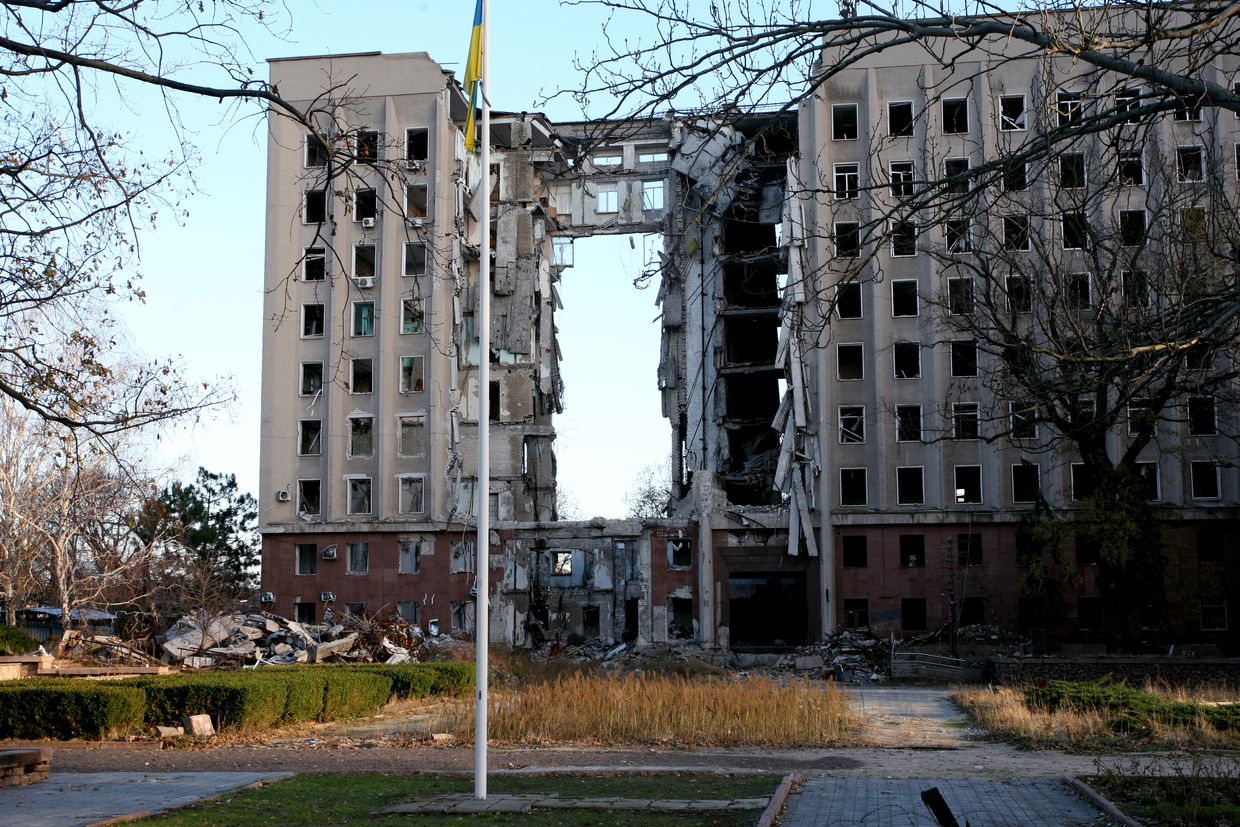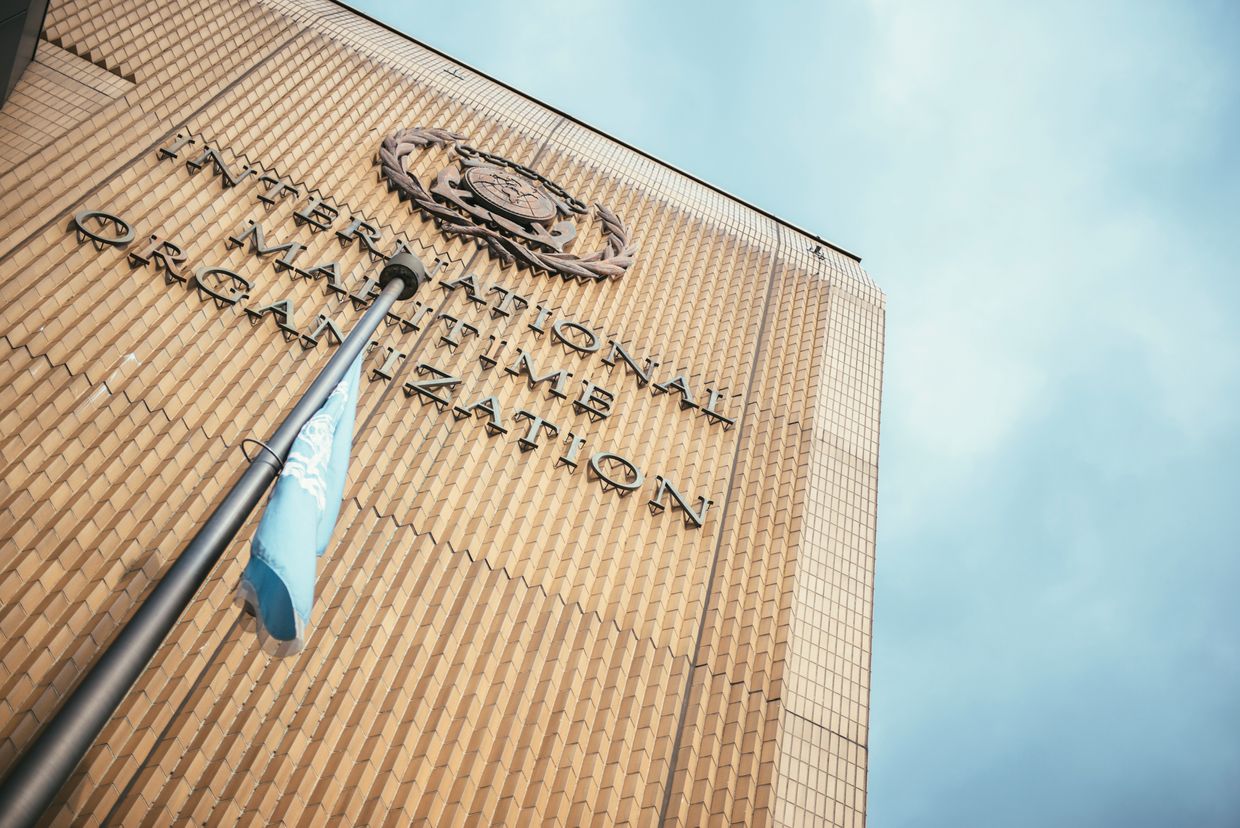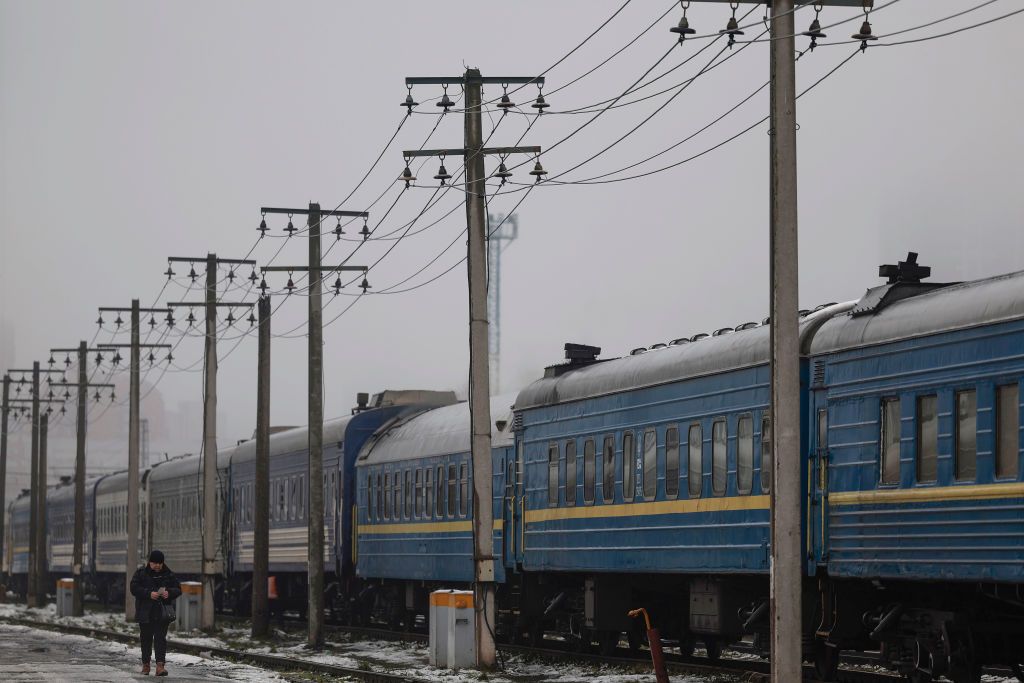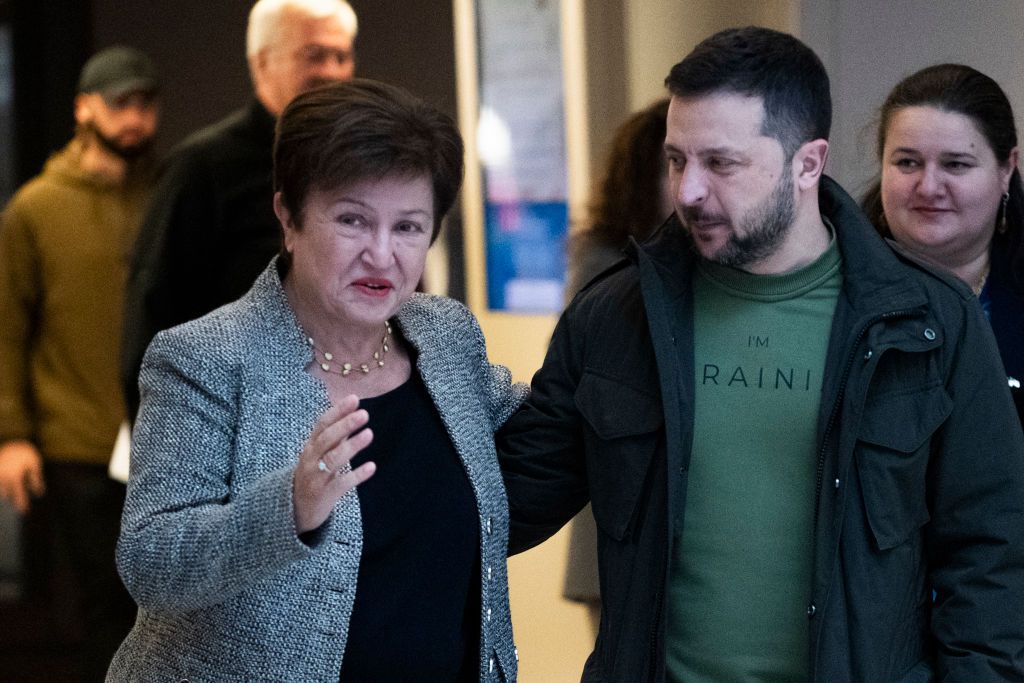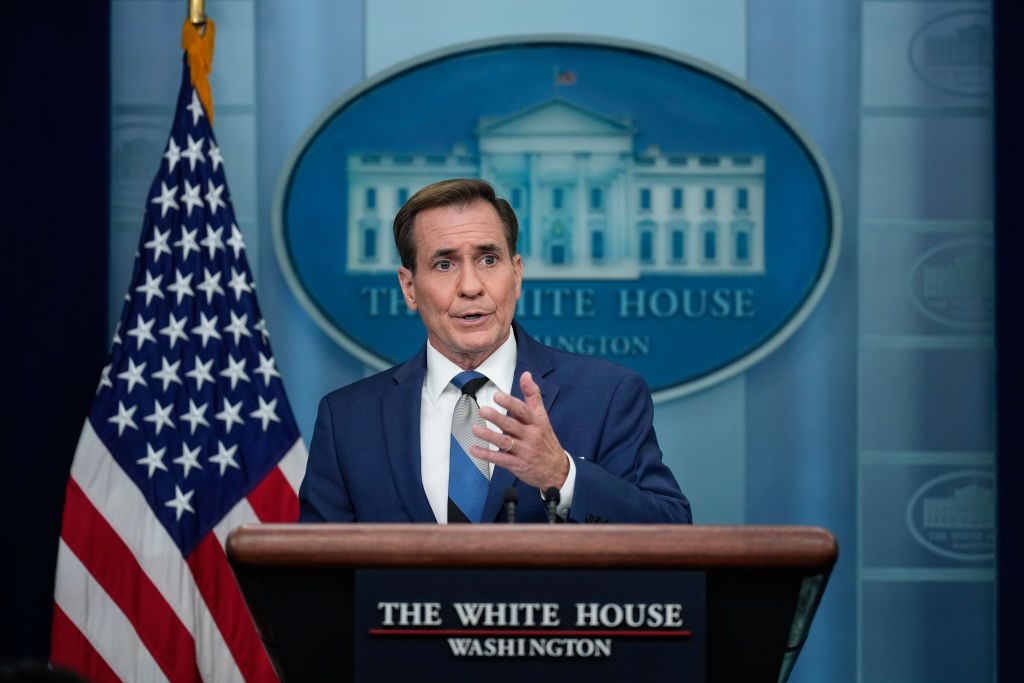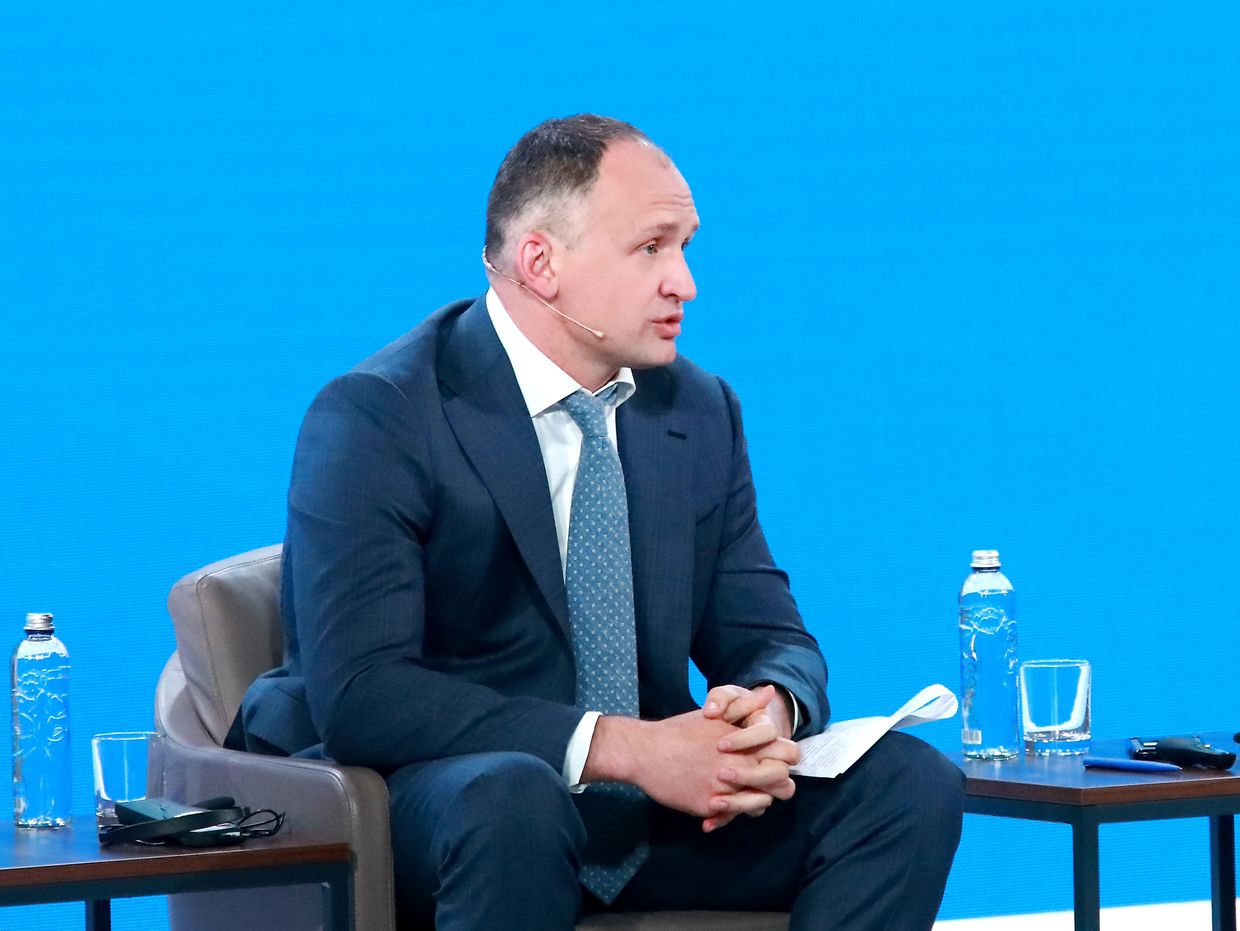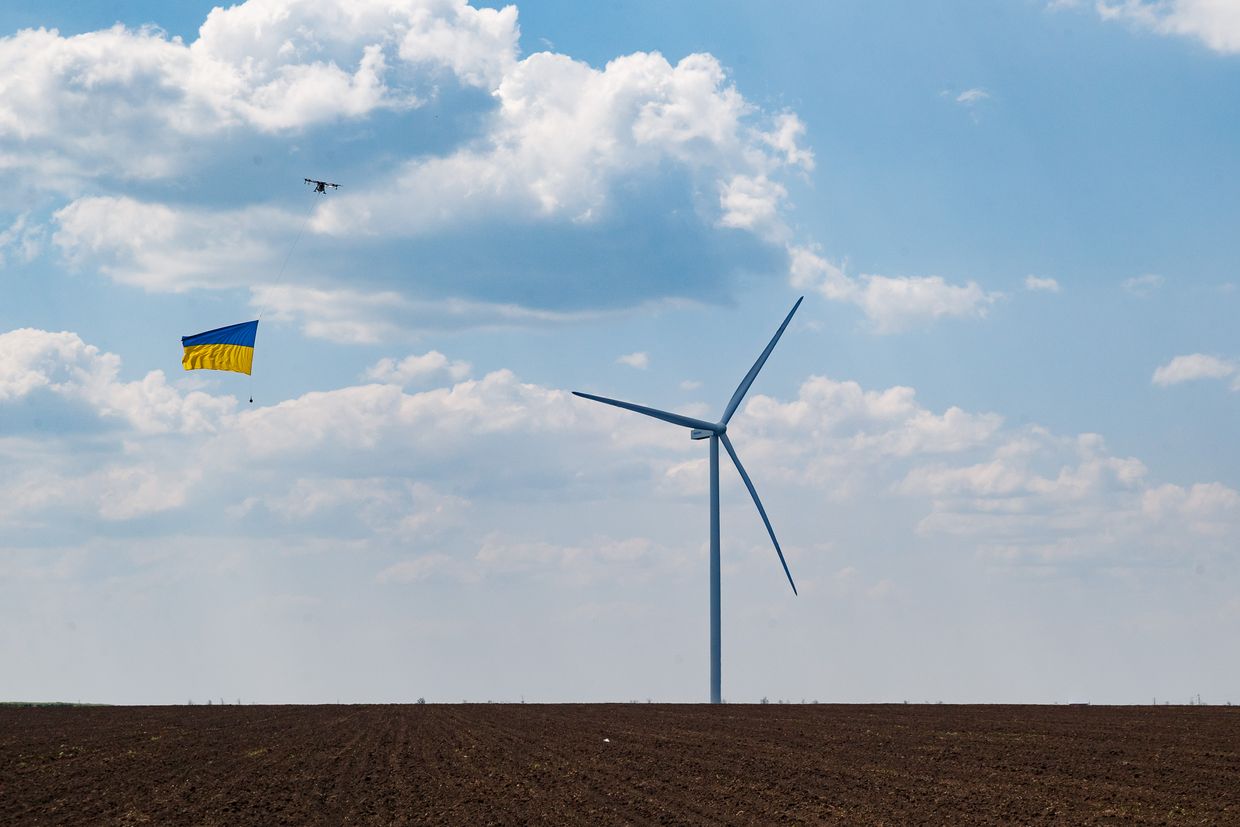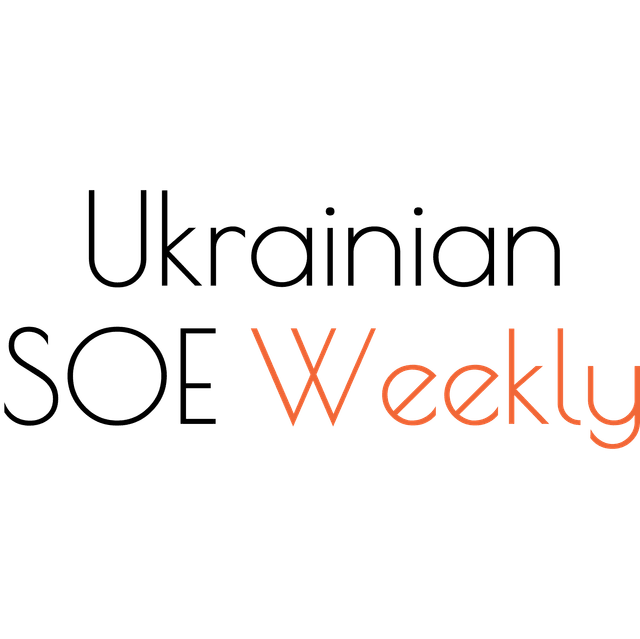Ukraine state-owned enterprises weekly — Issue 113
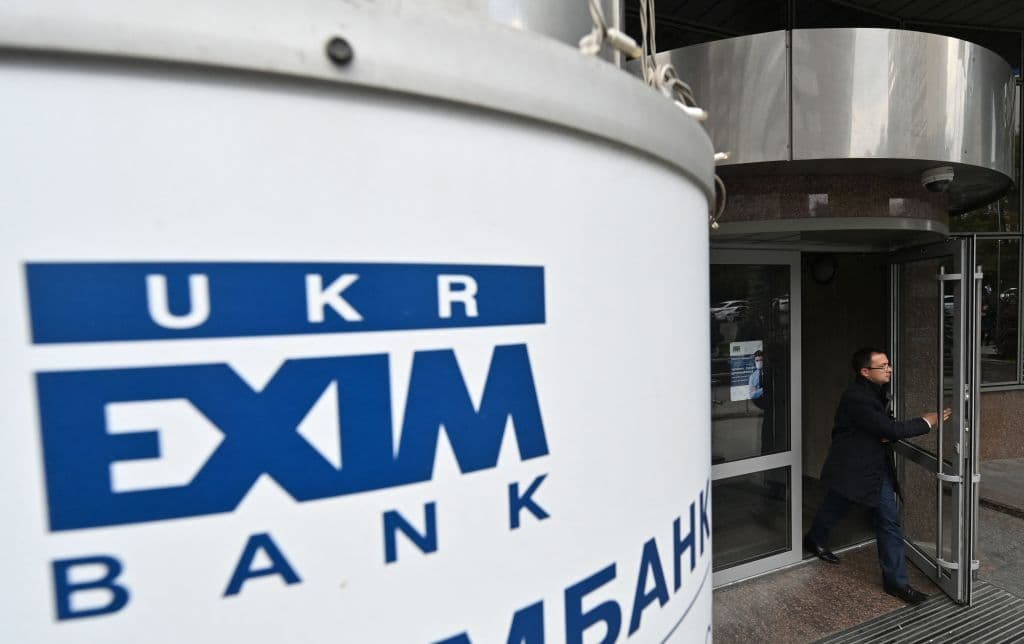
Editor’s Note: This is issue 113 of Ukrainian State-Owned Enterprises Weekly, covering events from Nove. 25 – Dec. 8. The Kyiv Independent is reposting it with permission.
Acknowledgement
This is the final issue that our team is releasing within the project “Supporting Ukraine in Rebuilding and Recovery." We wish to express our heartfelt gratitude to the European Union for funding the Ukrainian SOE Weekly from December 2022 to December 2023.
The EU’s support has enabled us to revive the publication of the SOE Weekly at the end of the most challenging year 2022, and we have since been able to consistently produce 48 issues, nearly every week. We greatly appreciate the EU believing – just as we do – that the SOE Weekly is a crucially important initiative.
Corporate governance of SOEs
Ukreximbank has been operating without a supervisory board for over six months. Despite the fact the Cabinet of Ministers appointed the new independent members of Ukreximbank’s supervisory board on May 30, the same ordinance of the Cabinet appears to have blocked the board’s work.
According to that ordinance, independent members serve for three years from the date on which all independent members officially assume their roles.
Based on our analysis below, the Cabinet’s ordinance implies that independent members of the supervisory board can only start performing their duties after each of them receives approval from the National Bank of Ukraine (NBU). However, the ordinance does not address a situation in which any of the candidates fails to secure approval from the NBU. This led to the six-month absence of a supervisory board at Ukreximbank to date.
In SOE Weekly Issue 90, we reported that according to the Cabinet’s ordinance, the new independent board members, appointed on May 30, were Sylvia Gansser-Potts, Razvan Munteanu, Robert Kossmann, Engin Akcakoca, and Rostyslav Futalo. Dominique Menu, who served as an independent member on the previous board, would continue in that role, according to the Cabinet’s decision. Also, Viktoriya Strakhova and Yuriy Butsa retained their positions as state representatives on the bank’s supervisory board.
Later, in Issue 99, we reported that on Aug. 4, the Cabinet appointed Oleksandr Bevz as a state representative to Ukreximbank’s supervisory board, nominated by the Verkhovna Rada’s Committee on Finance, Taxation, and Customs Policy.
According to Ukreximbank’s website, Strakhova, Butsa, and Bevz are current state representatives on the board.
The Law on Banks and Banking says that a bank’s supervisory board member takes office after NBU approval. According to the NBU Regulation on Licensing, the approval procedure of a bank’s senior officers can last up to 90 days from the day the bank submits his/her complete package of documents to the NBU. No such approval is required in case of reappointment.
That is, Menu, Strakhova, and Butsa did not need approval from the NBU and could take up their positions immediately starting on May 30.
As for the rest of the newly elected members of Ukreximbank’s supervisory board, according to the NBU database:
- Munteanu and Kossmann were approved by the NBU on Aug. 14, i.e., 76 days after their appointment.
- Gansser-Potts, Futalo, and Bevz were approved by the NBU on Aug. 28, i.e., 90 days after the appointment of the two independent members and 24 days after Bevz’s appointment.
According to the Law on Banks and Banking, the supervisory board of a state bank must consist of nine members, of which six members are independent and three members are state representatives.
In turn, according to the Law on Joint-Stock Companies, the supervisory board is considered competent – that is, legally able to operate and make decisions – if the number of members of the supervisory board is more than half of its total size. In the case of a state-owned bank, such as Ukreximbank, this means that the board needs a minimum of five members to be operational and be able to decide on all matters that belong to its competence.
Thus, as of Aug. 29, eight out of nine members of Ukreximbank’s supervisory board were approved by the NBU and could take up their positions, which made it possible to form a competent supervisory board.
- Engin Akcakoca, for more than 190 days, had still not been approved by the NBU.
The delay in NBU’s approval during such a long period may indicate the presence of some problems that prevent the NBU from approving Akcakoca.
On Dec. 6, during the VI International Corporate Directors Forum, Andriy Pyshnyy, the NBU Governor, said that Akcakoca’s application was withdrawn (i.e., the procedure for its approval is currently suspended).
This suggests that Akcakoca is unlikely to become a member of Ukreximbank’s supervisory board, and therefore the Cabinet’s ordinance (in its current version) is unlikely to ever be implemented. The remaining five independent members will be hindered from assuming their roles, preventing the establishment of an operational supervisory board as such.
It is unclear why the Cabinet worded its ordinance in such a way that Ukreximbank has been without a competent supervisory board for more than six months so far, although the board had everything it needed to start its work as of Aug. 29. Also, it is not clear why the Cabinet has not yet made appropriate changes to its ordinance nor launched the work of Ukreximbank’s board.
In SOE Weekly Issue 111, we reported that due to an identical Cabinet ordinance, Oschadbank was left without a supervisory board for almost seven months.
In practice, such Cabinet ordinances create a precedent that allows state-owned banks to be left without supervisory boards for an indefinite time.
Independent member resigns from Oschadbank’s supervisory board. According to Oschadbank’s disclosure, Anton Piatygin, an independent member of Oschadbank’s supervisory board, filed his letter of resignation on Nov. 15, effective Nov. 29 when his powers were terminated. He held the position from November 2021.
Later, Piatygin shared that he became a Vice President of Visa leading Visa Consulting and Analytics in the CIS and Southeastern Europe.
The law requires a competitive selection, publicly announced by the government, in order to appoint a new independent board member at a state-owned bank.
As we wrote in SOE Weekly’s Issue 111, Oschadbank’s supervisory board started its work and elected Volodymyr Lavrenchuk as its new chair on Nov. 14.
As we reported in Issue 85, the Cabinet appointed four new independent members of Oschadbank’s supervisory board back in April 2023. It is unclear why the board needed seven months to start its work only now. See Issue 111 for more detail.
In Issue 112, we reported that the Cabinet reappointed the three state representatives on Oschadbank’s board for a second term. See Issue 112 for more detail.
Head-hunter hired to find Energoatom a supervisory board. On Dec. 1, the Ministry of Energy announced an agreement with the winning firm – Executive Search Ukraine LLC (doing business as Amrop).
The agreement was signed on Nov. 29, and board selection should start in December, the Economy Ministry said.
According to Energy Minister Herman Halushchenko, the plan to transform the state nuclear operator Energoatom into a joint-stock company is on schedule.
In SOE Weekly’s Issue 74, we reported that the Verkhovna Rada passed Draft Law No. 8067 (in the second reading) on the corporatisation of Energoatom on Feb. 26.
As we wrote in Issue 79, corporate governance reform of Energoatom was among the government’s top priorities for 2023. According to the Cabinet of Ministers’ Priority Action Plan, Energoatom was to be converted into a joint-stock company by May 2023. The nuclear power operator was also slated to receive a competitively selected supervisory board with an independent majority. The deadline was November 2023.
In Issue 80, we reported that President Volodymyr Zelenskyy signed a law on the corporatisation of Energoatom on March 17.
As we wrote in Issue 86, the Cabinet approved the conversion of Energoatom into a joint-stock company to comply with the law. The Cabinet established a commission for this purpose. It is chaired by Oleksii Sobolyev, Deputy Economy Minister, and includes Petro Kotin, Energoatom’s CEO, Farid Safarov, Deputy Minister of Energy, and another eight members.
For a detailed account on the corporatization of Energoatom, see SOE Weekly’s Issues 41, 53, 58, 69, 74, 79, 80, and 86.
Kobolyev’s bonuses case sent to court, pre-trial restrictions extended. On Nov. 29, the Specialized Anti-Corruption Prosecutor’s Office (SAPO) announced that it submitted abuse of office charges against former Naftogaz CEO Andriy Kobolyev. He is suspected of wrongly giving himself over Hr 229 million ($6.2 million).
On Nov. 30, at the first preparatory hearing on Kobolyev’s charges, the High Anti-Corruption Court (HACC) granted the SAPO prosecutor’s motion and extended his procedural duties until Jan. 30, 2024:
- appear at every request of the prosecutor and the court;
- report any change of place of residence and/or work;
- refrain from communicating with the persons specified in the order;
- hand over all passports to the State Migration Service.
The court denied a motion to reduce the bail and return Kobolyev’s passport. The next preparatory hearing is scheduled for Dec. 14.
In SOE Weekly’s Issue 99, we reported that on Aug. 9, the HACC decided to extend the Hr 229 million bail for another two months and left procedural obligations, including pre-trial restrictions, of Kobolyev unchanged.
As we wrote in Issue 104, on Sept. 25, HACC removed the electronic ankle monitoring device from Kobolyev and halved his bail to the amount already paid, Hr 107 million ($2.9 million). See Issue 104 for more detail.
As we reported earlier, on Jan. 19, NABU and SAPO charged Kobolyev with illegally awarding himself Hr 229 million, which was part of a bonus given to the Naftogaz team for their victory against Russia’s Gazprom in Stockholm’s court of arbitration in 2018.
For an extended background on the Kobolyev case, see SOE Weekly’s Issues 71, 72, 73, 77, 78, 79, 83, 84, 88, 91, 99, and 104.
For a detailed analysis of this case from a corporate governance perspective, see series of columns by SOE Weekly team members Andriy Boytsun, Oleksandr Lysenko, and Dmytro Yablonovskyi: Are Kobolyev’s bonuses a threat to corporate governance reform? Part 1, Part 2, Part 3, Part 4, and Part 5.
Banks
President signs a law raising taxes on banks. On Dec. 6, President Volodymyr Zelensky signed the law increasing taxes for banks, previously passed by the Verkhovna Rada.
According to Ekonomichna Pravda (EP), the key changes concern the income tax rate for banks, which was 18% until this time.
For 2023, the law introduces a windfall profit tax of 50%. In fact, this provision would be applied retrospectively, the media explained.
- As from Jan. 1, 2024, the profit tax will be 25%.
This provision also prohibits banks from reducing the tax base for this year by losses incurred in previous tax periods. This right will be available to banks again from Jan. 1, 2024.
The reason for the introduction of higher taxes for banks, particularly a windfall tax for 2023, is obvious – the state budget deficit, EP explained.
As the tax period for profit tax is a quarter, banks have already paid this tax at the rate of 18% for most of 2023.
Once the law comes into effect, banks will have to revise their tax liabilities for the full year 2023. In particular, they will apply a 50% tax rate to their profits instead of 18% and add prior period losses back to the tax base in case they had reduced their 2023 profits by these losses. If the amount of tax liability increases after the recalculation, banks will have to pay the difference to the state budget within 60 days after the end of 2023, i.e., by March 1, 2024, EP added.
Since the majority of the banking sector’s profits are already concentrated in state-owned banks, the state treasury would not feel the direct impact of the tax rate increase from them. The state can already collect state-owned banks’ profits – in full or in part – either in the form of tax or dividends. Thus, the decision to increase the profit tax rate was primarily aimed at private banks, EP explained.
“Non-state banks have also been highly profitable: In the first nine months of 2023, they earned Hr 49 billion ($1.3 billion) in pre-tax profit. Of this amount alone, they can pay an additional Hr 16 billion ($433 million) in tax at the windfall rate of 50% (apparently, 32% in addition to the 18% that private banks have already paid to date). It is likely that the total amount of additional payments by non-state banks for the whole of 2023 will be Hr 15-20 billion ($379-542 million)” Oleksandr Parashchiy, Head of Research at Concorde Capital, calculated.
According to deputy chairman of the parliament’s tax committee Yaroslav Zheleznyak, following the change in the profit tax rate, state budget revenues in 2023 could increase by Hr 24-25 billion ($650-677 billion). In the following years, banks will pay Hr 6-7 billion ($162- 189 million) more (than they would at 18%), Zheleznyak said.
As we wrote in Issue 112, Ukrainian banks made a total profit of Hr 109.85 billion ($2.9 billion) in the first nine months of 2023. This is 1.4 times as much as what they made in the entire year before the full-scale Russian invasion, 2021.
- PrivatBank is still the undisputed leader, with profits of Hr 43.4 billion ($1.2 billion) in the first three quarters, twice as much as in the same period in 2021 (Hr 21.21 billion or $574 million).
- Oschadbank is in second place among all Ukrainian banks, with Hr 15.18 billion ($411 million) against Hr 850 million ($23 million) in the first three quarters of 2021.
- The recently nationalized Sense Bank is third with Hr 5.58 billion ($151 million), up from Hr 2.46 billion ($67 million).
- Ukreximbank earned Hr 3.59 billion ($97 million) in the first nine months of 2023, up from Hr 1.75 billion ($47 million).
- Ukrgasbank earned Hr 2.92 billion ($79 million) against Hr 1.75 billion ($47 million) in the first three quarters of 2021.
Overall, the share of state-owned banks’ profits increased to 63.4% of the total profits of Ukrainian banks in the third quarter of 2023
Energy sector
Energoatom pays Ukrenergo for dispatch control services in full. On Dec. 2, Energoatom said that it paid Hr 1.8 billion ($48 million) it owed to Ukrenergo for dispatch control services in November 2023.
According to Energoatom, it paid Ukrenergo Hr 6.8 billion ($184 million) in 2023 so far. As of Dec. 1, Energoatom has paid Ukrenergo’s dispatch management services in full and has no debt to Ukrenergo for balancing electricity.
Instead, Ukrenergo owes Energoatom Hr 629 million ($17 million) under the 2023 electricity balancing market participation agreement and another Hr 400 million ($10.8 million) to Energy Company of Ukraine as the party responsible for the balance for electricity purchased from the Company to settle imbalances, Energoatom said.
On Dec. 4, Energoatom also informed about its payments for the public service obligations (PSOs) to the Guaranteed Buyer:
- It paid 100% of the actual PSO cost for September and October.
- For November 2023, Energoatom has already paid Hr 14.3 billion ($387 million). It will pay 100% of the November 2023 costs after it receives the service acceptance certificate for that month.
- The company paid over Hr 5.8 billion ($157 million) (40%) in advance payments of the projected PSO costs for December 2023.
Since the beginning of 2023, Energoatom has paid Hr 113.3 billion ($3 billion) to the Guaranteed Buyer for the PSO service, the company said.
Energoatom and Ukrhydroenergo were granted the right to sell electricity on market terms from Oct. 1, 2021. Under the new PSO financial model, the proceeds were used to compensate electricity providers for the difference between the regulated household tariffs (Hr 1.44/kWh and Hr 1.68/kWh depending on the volume of consumption) and market prices.
Since October 2021, the Cabinet of Ministers repeatedly extended the PSO mechanism to keep electricity tariffs for households unchanged. The PSO mechanism was in place until April 30 – the price of electricity for households remained unchanged until the end of the previous heating season.
On May 30, the Cabinet of Ministers approved an increase in the electricity tariff for households to Hr 2.64/kWh from June 1.
As we wrote in Issue 109, after accumulating large debts due to losing the Zaporizhzhia Nuclear Power Plant, Energoatom has been able to fulfil all PSOs again since September 2023.
In Issue 110, we reported that the electricity market has a chain of debts of “everyone to everyone” worth Hr 60 billion. See Issue 110 for more detail.
Naftogaz will complete taking over all Firtash gas companies by the end of 2023, says they should be privatized after the war. On Nov. 27, Gas Distribution Networks of Ukraine LLC (Gazmerezhi brand), a Naftogaz subsidiary, reported that Rivnegaz, Zaporizhgaz, and Chernivtsiagaz came under state control and joined Naftogaz Group.
With these three companies, the total number of gas distribution companies integrated into Naftogaz Group increased to 22, Gazmerezhi said. Together, Rivnegaz, Zaporizhgaz, and Chernivtsiagaz serve almost one million customers.
Rivnegaz, Zaporizhgaz, and Chernivtsiagaz were part of fugitive tycoon Dmytro Firtash’s Regional Gas Company (RGC) Group.
On Dec. 4, Gazmerezhi reported that another gas distribution company, Ternopilgaz, came under the management of Naftogaz Group, becoming the 23rd regional gas company integrated into the Group. It serves about 200,000 private households and 3,000 legal entities, Gazmerezhi added.
According to Forbes Ukraine, Ternopilgaz was also previously part of the RGC Group.
On Dec. 6, Naftogaz’s CEO Oleksii Chernyshov told RBC-Ukraine that, by the end of 2023, Naftogaz plans to integrate three more of Firtash’s regional gas companies – Korostyshivgaz in Zhytomyr Oblast, Tysmenytsiagaz in Ivano-Frankivsk Oblast, and Luhanskgaz, which is located in Ukraine’s temporarily occupied territory. This will bring the number of integrated regional gas companies to 26 by the end of the year, Chernyshov added.
The integration of regional gas companies establishes Naftogaz as a monopoly in gas distribution, but it is a wartime measure, and they should be privatized via public auctions when “the situation allows this," Chernyshov said.
In SOE Weekly Issue 71, we reported that Naftogaz changed the management of regional gas distribution companies Kharkivgaz and Dniprogaz on Jan, 16. These companies were part of Firtash’s RGC Group.
RGC accused Naftogaz of an “attempted raid." In response, Naftogaz referred to the Cabinet of Ministers’ Decision No. 429-r dated 28 May 2022, which transferred the corporate rights of about 20 regional gas distribution companies to its subsidiary Chornomornaftogaz.
Earlier in May 2022, Kyiv’s Pechersk Court seized shares of Firtash’s regional gas companies because they evaded payment for the use of gas networks. (After that, the Cabinet transferred these rights to Chornomornaftogaz.) RGC then filed lawsuits to overturn the Pechersk Court’s decision. This delayed the change of management of these distribution companies.
In September 2022, Naftogaz established a new subsidiary named Gas Distribution Networks of Ukraine LLC to consolidate the regional gas distribution companies.
We then reported on the ensuing wave of taking over Firtash’s gas distribution companies that were also part of RGC Group. For Sumygaz, Vinnytsiagaz, and Dnipropetrovskgaz, see SOE Weekly’s Issue 98. For Ivano-Frankivskgaz, Khmelnytskygaz, and Mykolaivgaz, see Issue 100. For Cherkasygaz, see Issue 104. For Volyngaz and Chernihivgaz, see Issue 108. For Zakarpatgaz see Issue 111.
In Issue 105, we wrote that Naftogaz’s branches received operating licences from the National Energy and Utilities Regulatory Commission (NEURC).
The gas market has a chain of debts of “everyone to everyone” worth Hr 200 billion. On Dec. 6, EP wrote that, according to USAID, the total level of unsettled debts in the gas market exceeded Hr 190 billion ($5 billion) in early September 2023.
According to the data of the National Energy and Utilities Regulatory Commission (NEURC) seen by EP, the total debt exceeded Hr 200 billion ($5 billion) as of Oct. 1.
As in the case of the electricity market (see SOE Weekly’s Issue 110), almost all industry participants are on the list of debtors and those who are owed money to: Naftogaz, Gas Transmission System Operator of Ukraine (GTSOU), Ukrtransgaz, district heating companies, combined heat and power plants, regional gas companies, gas sales companies, and households.
In our Issue 110, we reported that the electricity market has a chain of debts of “everyone to everyone” worth Hr 60 billion ($1.6 billion). See Issue 110 for more detail.
According to EP, there are several sources of these debts, as discussed below.
Heating debts. Heating and combined cycle plants have historically been the largest debtors. These producers account for Hr 90.4 billion ($2.4 billion) of the total debt of non-household gas consumers, Hr 129.7 billion ($3.5 billion).
Another Hr 38.9 billion ($1.1 billion) is owed by industrial enterprises, including power plants.
Gas supplies for heat production have always been fraught with problems. State-owned and municipal district heating companies complain that heat tariffs do not cover the cost of purchasing natural gas, and the population never fully pays for the gas consumed, the media explained.
According to EP, the situation in the industry has deteriorated significantly since the beginning of the full-scale war. Firstly, from the summer of 2022 until the end of martial law, a moratorium on raising heat tariffs for households has been introduced. The law was passed in the summer, and the moratorium has been in effect since Feb. 24, 2022. This does not allow revising tariffs so they could be economically justified. Secondly, natural gas is more expensive during certain periods, and the current tariff does not allow covering this price, the media added.
The situation has also been aggravated by large-scale shelling of critical infrastructure, which has forced companies to use part of the money, which they could have used to cover their debts, to repair damaged equipment.
As a result, district heating companies have accumulated multibillion debts to Naftogaz, the sources of which are yet to be identified. Consultations between the Communities, Territories and Infrastructure Ministry, the Finance Ministry, and Naftogaz in coordination with the International Monetary Fund are ongoing, EP summarized.
Households’ debt. According to the NEURC, households owed Hr 29 billion ($785 million) for gas in early October 2023.
“We are also talking about old debts to the so-called gas sales companies, previously controlled by Firtash’s entities, which no longer supply gas, as well as consumers in the territories occupied by Russian troops after the beginning of the full-scale war. These are Mariupol, Melitopol, parts of Zaporizhzhia, Kherson, Luhansk, and Donetsk oblasts,” EP’s source explained.
Regional distribution debts. According to EP, gas distribution companies owe Naftogaz Hr 21.3 billion ($576 million) for so-called process gas.
The regional gas companies also owe Hr 15.2 billion ($411 million) to GTSOU for the daily negative imbalance – this is gas that was taken from the system but not paid, EP explained.
There are also old debts that were formed before 2020. In particular, these are debts of regional gas companies to Ukrtransgaz, which exceed Hr 20 billion ($541 million), and debts of gas supply companies, which are about Hr 24 billion ($650 million), the media added.
“These are historical debts that have been accumulating for years. It is clear that the war had a negative impact, as many entities remained in the occupied territories. There was a problem even before, when distribution tariffs were not revised for a long time and they did not cover all costs, including process gas. That is, the lion’s share of debts was caused by deficiencies in state regulation,” EP’s source in the government said.
The experts and market participants interviewed by EP said that there was no simple solution. “We need a systematic approach that includes unpopular measures,” the representative of one of the sector’s state-owned companies said.
“It is necessary to lift the ban on disconnecting consumers, except in the areas where the fighting is ongoing, and to improve payment discipline. We can’t count on total consumer awareness,” EP’s source in the government added.
“Our goal is to gradually move to economically justified energy tariffs and cancel all PSOs by the fourth quarter of 2025. This should be done in conjunction with the systematic settlement of debts in the gas and district heating markets,” Oleksandr Butenko, Deputy Minister of Communities, Territories and Infrastructure, explained.
Privatization
Minority owner of Ocean Plaza threatens the state with legal action. According to liga.net, Lanita Invest LLC, which owns 33.35% of Kyiv’s Ocean Plaza shopping mall and is controlled by businessman Andriy Ivanov, accused the government of restricting its rights and threatened litigation.
The immediate owner of Ocean Plaza is Investment Union Lybid LLC, in which the state owns 66.65%, and Ivanov owns 33.35% via Lanita. According to liga.net, its charter requires 75% of votes for general meeting decisions, which means nothing can be done without Ivanov’s consent.
On Nov. 24, a panel at the Justice Ministry cancelled this version of the charter, and now decisions can be made by a simple majority, the media explained.
The powers of the directorate (Lybid’s executive management body) were also limited: Under the cancelled charter, it could approve transactions worth up to $1 million without a general meeting, while now this amount cannot exceed $50,000. The cancelled charter provided for changes in and expansion of the company’s directorate, as well as diversification of the competences and functional responsibilities of each director (member of the directorate), liga.net added.
Put simply, it is likely that the state wants to reduce the voting threshold for the general meeting’s decisions so that it can run Lybid single-handedly, including changing Lybid’s management while also limiting the autonomy of new management.
“Lanita Invest LLC considers the government’s decision to be unlawful and one that will provoke lengthy litigation and therefore harm the investor and the asset,” the company’s statement reads.
The statement did not specify where such litigation would be initiated.
As we wrote in Issue 106, the SPFU wants to sell the state’s 66.65% stake in Ocean Plaza, previously owned by the sanctioned Rotenbergs, with a starting price of Hr 1.3 billion ($335 million). See more details on this case in Issue 106.
As we reported in Issue 109, in late October 2023, then acting head of the SPFU Oleksandr Fedoryshyn said that it challenged the charter of Investment Union Lybid LLC and planned to change the management after the approval of the complaint.
Confiscation of Russian assets, nationalization, and asset seizure
Ukraine plans to confiscate 50 companies from Russia and its residents. On Dec. 5, lawmaker Yaroslav Zheleznyak (Holos faction) said that the Cabinet of Ministers planned to make a decision on the seizure of 50 properties owned by Russia and its residents in Ukraine.
The Cabinet’s decision was not publicly available at the time of writing.
According to the list published by Zheleznyak, half are inside Ukraine’s occupied or disputed territory.
Among the listed companies is Ukrainian Energy Machines (formerly, Turboatom). In September 2021 (Issue 41), we reported about the plans to merge Elektrovazhmash with Turboatom. Electrovazhmash and Ukrainian Energy Machines are slated for privatization. See Issue 41 for more detail.
The list of companies also includes a number of subsidiaries of Russian energy holdings, such as Gazprom Zbut Ukraine, Gazpromneft Lubricants Ukraine, Tatneft-AZS-Ukraine, and Gazprom Export.


